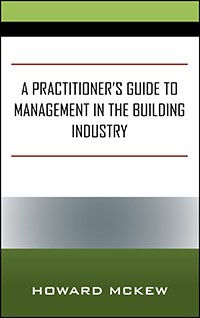Commissioning Issues
Reason #1: This new “business opportunity” could be a great boom for the already busy engineering community. The “we can do that too” mentality was prevalent throughout the conference. It was stated at the NCBC that 70% of the people were first- time attendees to the sessions. There seems to be a keen interest in “How do I get into this business?” Questions were presented to lecturers as to how to go about advertising these services, how to staff-up to provide these services, and how to charge for these services. I left the conference thinking that there was very little new commissioning information presented and that much of the conference repeated basic commissioning process. In fact, I will go so far as to say, “I didn’t learn anything new about commissioning!”Reason #2: This new business could eventually receive the same “bad press” as the testing, adjusting, and balancing (TAB) business. As I sat in and listened to some people mistakenly think that commissioning is another word for TAB, it occurred to me that if the commissioning professionals are not careful, they will be the next generation of TAB contractors. For those who read this monthly column, you will probably realize that I believe the TAB contractor is a very valuable professional. At the same time, the TAB industry is not always a highly regarded profession and, to some extent has created the negativity that they receive. So often it is said (and it was said again and again at the NCBC) that the TAB contractor probably completed the TAB report in the office. The same will be said for the commissioning report if these professionals don’t learn from the TAB industry, who have been at this business for a lot more years than the NCBC.
Reason #3: Commissioning is not “startup” and startup is not commissioning. So often during conference sessions, it seemed to me that people were mixing up these two processes. This misunderstanding was very prevalent among the consulting engineering community who was anxious to offer this extra service at the end of the construction process. After listening to engineers question the commissioning process, it became obvious that these designers were focusing on the problems that they face as a construction job is closed out. The commissioning process is intended to begin at the conceptual phase or programming phase of a project but is frequently contracted to begin as the job goes into the final stage of construction. As a result, many think of commissioning as startup.
Reason #4: There is a concentrated effort to organize commissioning professionals into a building commissioning society or association. Issues such as the importance of membership, certification, educational programs, etc. were all bantered around as benefits of membership. As I listened to the discussions, I could only think of another engineering- related association that flooded the industry with junk mail several years ago. This other association inundated people with the opportunity to attend their educational programs (coming to your city soon), certifications as an energy manager, cogeneration professional, etc. and other titles. Every week you could expect mail from this organization of a new course, book, certification, etc. that could separate you from the competition. The commissioning association needs to proceed with caution and not flood the building industry with “a wealth of information.”
Learning From the Masters
You can count on ASHRAE and AFE to have informative, technical sessions at their annual (and semi-annual) conferences. The NCBC needs to learn from these two organizations as to how their commissioning seminars can be as informative. If companies interested in getting into the commissioning business want a marketing seminar, then NCBC should offer a seminar to bring together the “we can do that too” group. For the experienced commissioning firms, more technical and cutting edge discussions are needed. In addition, discussions on monitoring and measured results and also “lessons learned” discussions should be high on the list of technical seminars.If the commissioning industry is to raise itself to a plateau where it is recognized as needed, professional, and authentic, it needs to learn from the other organizations that currently exist. The annual conference needs to be informative with cutting edge technology, proven business practice, standards, and membership guidelines that encourage and reward membership participation. It needs to recruit more building owners to participate, contributing their issues, concerns, and case studies. (Eighty-five of the 309 participants represented owners [27%] .)
And, most important it needs to “Handle with Care” the commissioning process!


